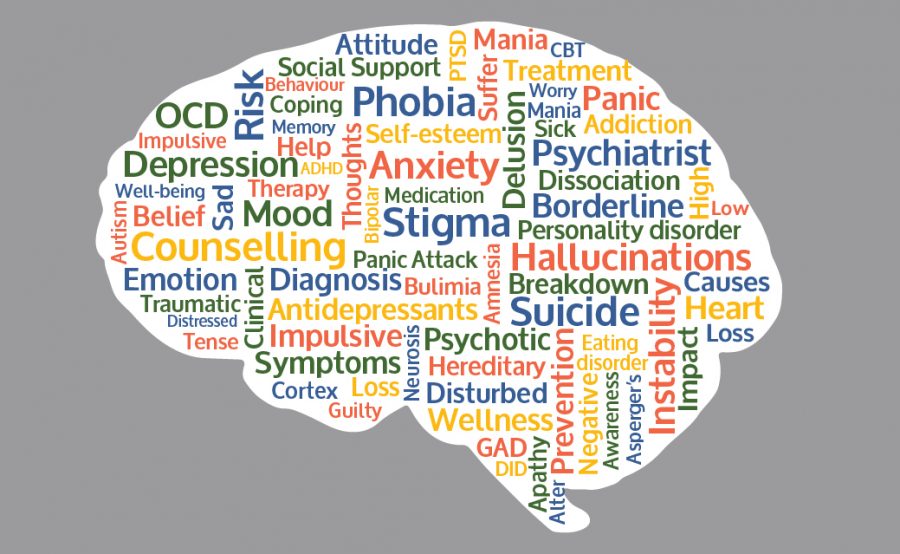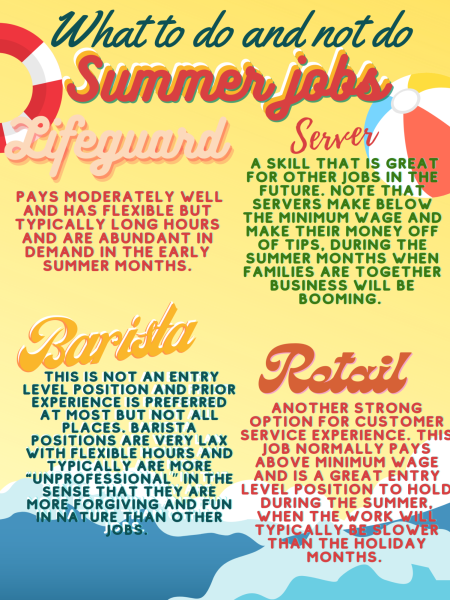Mental Breakdown
advice on why you should not invalidate mental health
Provided by: Toronto Caribbean Newspaper
An illustration that contains various terms related to mental health.
Visualize a child, a man, a woman, a mom, a dad, a worker, a normal person, a celebrity, anyone. Imagine that they are clinically diagnosed with depression, but no one is willing to make sure they are okay. No one is willing to listen to their struggles, and no one will believe them when they say, “I have depression. I am suicidal.”
This is the danger in modern day society. Many people ignore mental health because it supposedly is not as serious as physical abuse. A false notion, seeing as millions of people worldwide harm themselves due to damaged or impaired mental health. Both physical and mental abuse are harmful in their own ways, and they should not be compared or weighed against each other.
In December of 2017, Korean boy group member Kim Jonghyun committed suicide. While not explicitly stated, it is strongly believed that he endured depression until the very end. This unfortunate incident caused mass panic and mourning across the world, a multitude of memorials and services spawned in order to commemorate the life-changing effect Kim had on millions. Even in celebrities, depression runs rampant yet society chooses to ignore mental health, deeming any discussion to be taboo. This can be avoided if society changes its views on mental health in general. Alongside Kim, many other celebrities, both in the Korean industry and worldwide, have suffered through, or are still going through, extreme depression.
Brushing aside mental health is extremely dangerous and detrimental to societal welfare; sometimes, what you cannot see is what is most dangerous.
Be aware of others around you, and try to empathize when they are hurting. Most of the time, you will not even know they are in pain unless they trust you enough to tell you directly. And if they do, be wise and do not be selfish or careless. Listen to them. Do not invalidate their problems with your own. Chances are, you have no clue what they are going through. Mental health is slowly becoming less and less taboo, but it is up to us to change the misconceptions and stigmas society chains to illnesses such as depression or anxiety.
Your donation will support the student journalists of Cypress Woods High School. Your contribution will allow us to purchase equipment and cover our annual website hosting costs.





